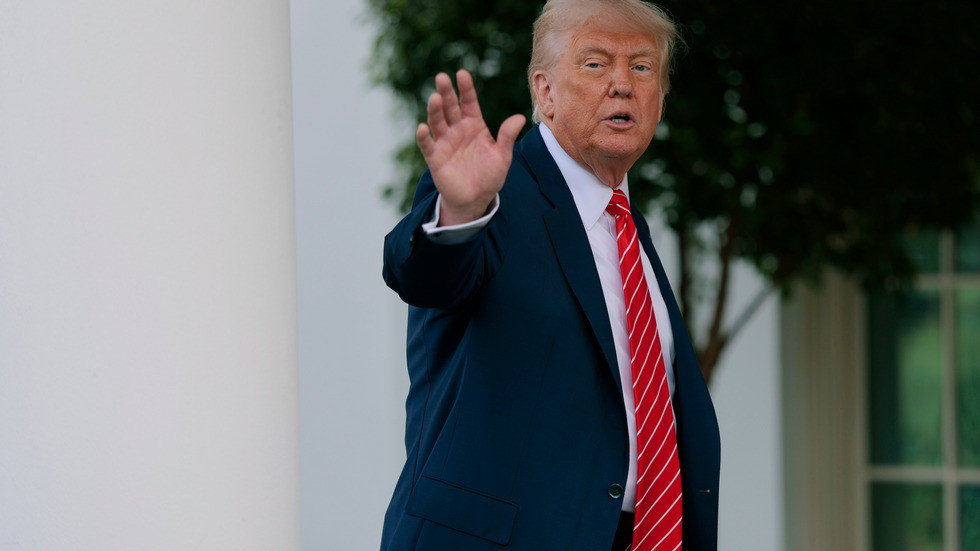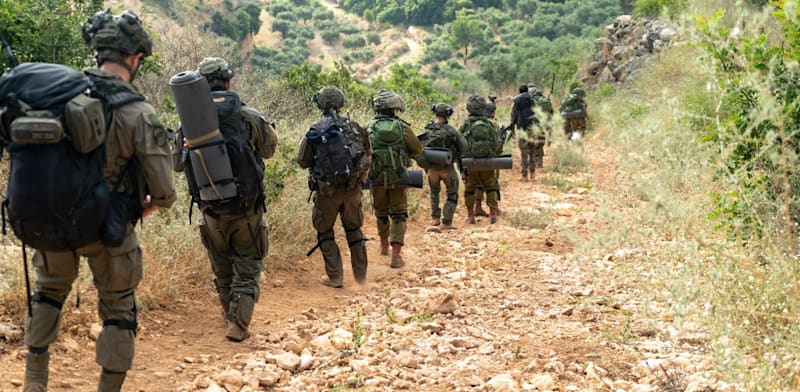On Monday, at the start of their first match in the 2022 FIFA World Cup, members of the Iran men’s national soccer team stood silently as their national anthem played.
It was a highly visible reminder that dissatisfaction with the Iranian government remains strong, several months into ongoing protests in the country.
The Iranian regime is struggling to crush a massive wave of nimble and durable protests, unlike any the Islamic Republic has faced in the past. The leaderless movement has grown in strength despite increasingly harsh crackdowns, relying on unprecedented solidarity between ethnic minorities, different religious groups, and men allied with protesting women.
The movement started in September after the death of 22-year-old Mahsa Amini, an ethnic Kurd from Saqez in northwest Iran, who was arrested in Tehran by the morality police for allegedly wearing her hijab incorrectly and who later died in police custody. Protests in Saqez quickly spread to Tehran and other cities throughout the country. Now in their third month, the protests show no signs of stopping, despite the shocking violence security forces have deployed against the demonstrators, including savage beatings, mass arrests, and indiscriminate killings of protesters, including children.
At the frontlines of the demonstrations are women and young people — high school students walking out of school on strike, and women tearing off their hijab and cutting their hair in public as an act of mourning and defiance.
Despite earlier viral claims, the government has not sentenced the estimated 15,000 people detained during the protests to death, as Al-Jazeera explained last week. That misunderstanding likely comes from a statement that 227 of Iran’s 290 parliamentarians signed stating that protesters “waging war against God” should be dealt with in a way that would “teach an example.”
“But they’re not going to execute them all,” Ali Vaez, the International Crisis Group’s Iran project director, told Vox via email. “If the past is prelude, the regime is likely to cruelly execute a few to teach others a lesson and deter them from coming to the streets.”
Still, more than 300 have been killed during the protests. That number includes roughly 50 children under 18, the New York Times’ Farnaz Fassihi reported last week. But casualties and arrests are difficult to track; social media and internet access have been severely curtailed, and foreign reporters can’t access the country. Thus far, five protesters are set to be executed for participating in the uprising.
However, the government’s response to the protests is becoming more extreme; security forces have escalated from using tear gas to firing on protesters with metal pellets and rubber bullets, and the bodies of multiple dead teenagers show evidence of severe head trauma. Mass arrests, threats of executions, and indiscriminate killings have only fueled the protesters’ call for a new government and “death to the dictator.”
The violence could get worse, Borzou Daragahi, a senior international correspondent for the Independent and a senior fellow at the Atlantic Council, told Vox in a phone interview. “In the mind of the regime, nothing is off limits because we’re doing God’s work,” he said.
Here’s how the protest movement has evolved over time
The leaderless, nameless movement began among women, long treated as second-class citizens with few rights in the Islamic Republic, and has remained a women-centered movement. Every day, girls and young women defy the strict orders to cover their hair in public, confronting those who demand they follow the rules, even apparently heckling a member of the feared Basij, a paramilitary force which is part of the Iranian Revolutionary Guard Corps (IRGC) and instrumental in the violent crackdowns on protesters.
“It’s really touching and kind of unprecedented even, perhaps, globally, this kind of feminist angle, and it is real,” Daragahi said. “The men supporting the women, the schoolgirls going out and protesting by day, the schoolboys going out and rioting against the police at night, people backing each other up, people cheering on the women as they take off their hijabs and so on. This whole feminist angle of it is quite singular, for a political revolution in any country.”
Schoolgirls began participating in the protests publicly and in earnest in October, and over the past several weeks the protests have morphed into something broader and further-reaching — a call for the end of the regime coming from Iranians across ethnic, gender, and religious backgrounds.
The movement is also diversifying its tactics beyond just marching in the street each day, as Elham Gheytanchi, a sociologist affiliated with Santa Monica College, wrote for the Wilson Center last week:
The current social movement is spreading in the following ways: students in major universities (112 universities and counting) are on strike; high school students are walking out of classrooms; street protests are occurring almost every night, especially on Wednesdays, and on the traditional 40th day of passing of each “martyr” killed by security forces.
Protesters have also called for boycotts of goods manufactured by businesses with reported ties to the regime, Gheytanchi wrote, including a major manufacturer of groceries and home goods as well as Iran’s version of Amazon, Digikala.
The effect of the boycotts is such, Vaez said, “that even a rumor of a distant association with the IRGC can now ruin businesses that might have no ties to the force and have suffered for years under sanctions and endemic corruption.” On top of strikes in major industries and a loss of internet-generated revenue due to blackouts and restrictions on services like Instagram, the boycotts are likely to do even more damage to the economy — but without a guarantee that they’ll cause the regime’s downfall.
“In some ways, the boycott is bound to compound the impact of sanctions, ushering in more misery,” Vaez said. “The regime has always been able to transfer the economic pain to the middle class, in the same way that Saddam [Hussein] in 2002 was much wealthier than he was in 1992 at the beginning of the international sanctions regime against Iraq. It took an external intervention to bring about regime change in Iraq after a decade of devastating sanctions.”
Can Iran’s government stop the momentum?
Iranian society has a long history of protest, as Haleh Esfandiari and Marina Ottaway wrote for the Wilson Center last month. But the regime succeeded in quashing previous mass movements like the 2009 and 2019 protests fairly quickly. Those movements were based around singular issues, like the rigged election of unpopular leader Mahmoud Ahmadinejad to the presidency in 2009 and a rise in gas prices in 2019.
This movement is elemental; the call is not just for reform but a fundamental challenge to the regime’s basic conception of society.
“Iran is a patchwork of different sects and ethnicities, and thus is vulnerable to the same fault lines that have pulled other countries in the region into civil strife,” Vaez said. “But these protests are primarily driven by a broadly shared sense of nationalism, not separatism. Even though the regime has tried to portray them as a threat to the country’s territorial integrity and at times has even provoked separatists by deploying a higher degree of violence in Iran’s border provinces, where minorities reside, the movement has preserved its nationalistic character.”
But for Ali Khamenei’s theocracy to collapse would most likely require “pressure from below and divisions at the top,” Karim Sadjadpour wrote for Foreign Affairs this spring. The pressure from below is certainly there, despite the increasingly high costs.
The economic misery Iran faces — the result of brutal sanctions on the part of the US and its allies, as well as the regime’s determination to exert its influence in Syria, Lebanon, Yemen, and now Russia by funding proxy groups and exporting weapons — is a powerful galvanizing force. With unemployment running at about 11.5 percent, people have both the incentive and the time to protest.
However, the country’s elite seem to be surviving the economic free-fall and maintaining their support for and ties to the regime, too, Vaez said. “We have seen no serious defections so far,” among the country’s well-connected and powerful upper class. Despite “the abject failures of the regime to improve the country’s economic well-being,” the highest echelons of society have, at least publicly, refused to stand up to those in power.
There are cracks in the regime’s façade, Daragahi said, though they might be small and easy to miss.
“It appears that the difference is between those who support the crackdown and those who want more crackdown,” Vaez told Vox. The political fractures aren’t as extreme as they have been in past protest movements, likely due to the fact that “the system purged the most pragmatic forces of Iranian politics and is now left with either ultra-hardliners or sycophants,” he said.
But there are signs that the regime is not fully in control of the riot police, whom Daragahi described as either thugs or religious zealots, which puts it in a precarious position.
“People are getting killed because it’s a mess; they’re unprofessional and they can’t do proper crowd control,” Daragahi explained. “Basically, when you let the dogs out of their cages, this dynamic erupts. No one is going around and executing children on the street; they’re just reckless and evil, thugs, who are hired to go and crack down on this protest. They have very little experience.”
Even if the regime is uncomfortable with the killing of innocent protesters, it’s a major risk to condemn the security forces carrying them out, as it could cause them to turn against the clerics in charge.
“The main risk is that if the theocracy proves incapable of reining in the protests, the Revolutionary Guards might push the clerics aside and take over,” Vaez told Vox.
And despite the horrors of mass arrests, threats of execution, and the deaths the regime has already perpetrated, the protests have only persisted, grown, and evolved. “It’s already in uncharted territory,” Daragahi said, both in terms of the momentum of the movement and in the reaction of the regime.
“But so far,” Vaez said, “every measure from the regime’s old playbook has failed to crush the protests.”
Update, November 21, 10:35 am: This story was originally published on November 19 and has been updated with the members of the Iran men’s national soccer team’s silence during their national anthem at the 2022 FIFA World Cup.














